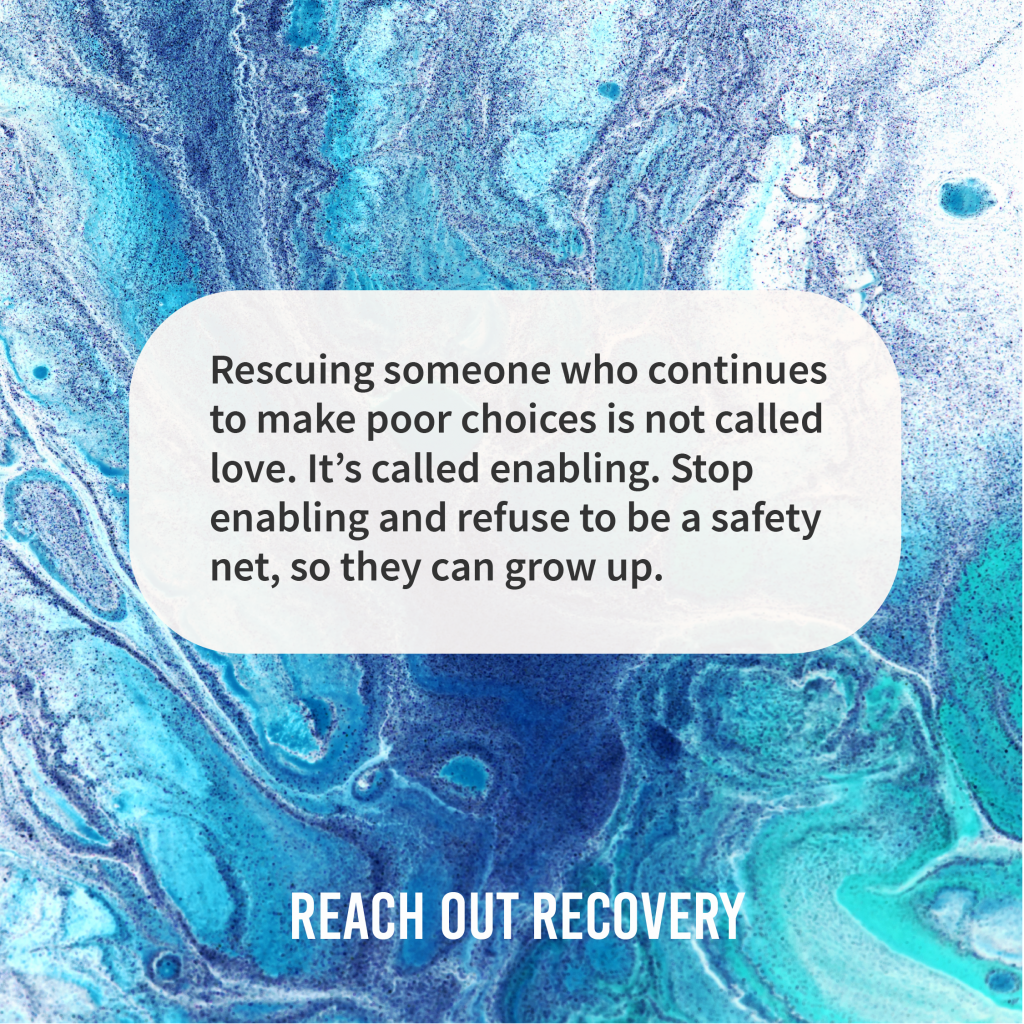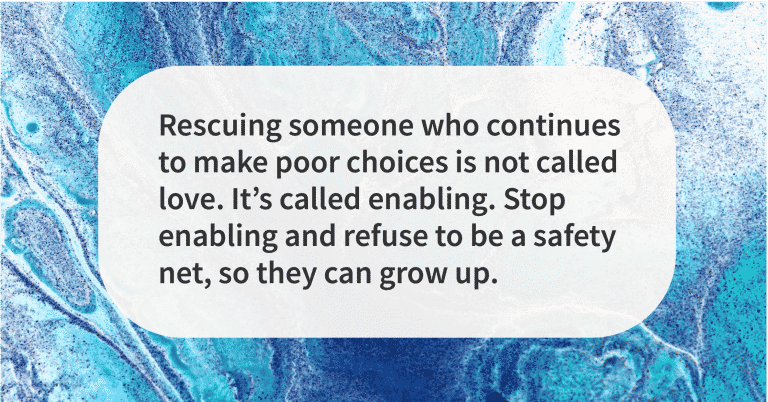
Stop Enabling To Help Loved Ones
How can you stop enabling? This is such a tricky question because the line between helping and supporting and enabling is not always black and white. Rescuing is critically important when you’re dealing with young children. But adults, whether friends, loved ones, or relatives, who keep making poor choices and hurting themselves need life lessons more than safety nets. Detachment from helping doesn’t apply to people who are suicidal or mentally ill, however. When people are in crisis, they need extra support. It’s an important distinction to make.
In a nutshell, being an enabler is doing things for others that they can do themselves. Enabling may start with kindness. It may start as a necessity. As parents, we help toddlers and children with tasks they can’t do alone. But once they learn to use the bathroom and tie their shoes, we don’t have to tie their shoes or wipe their bottoms for them anymore. In fact, quite rightly they get mad at us if we try. But often, we move on to helping teens and young adults do things they can do for themselves.
What Happens When You Stop Enabling
What is enabling anyway? No one sets out to enable laziness, or helplessness, or addiction for that matter. On the contrary, many start out with good intentions. We love the person struggling with mental illness or addiction, and they are in grave danger, so just this once, we bail them out of jail. Or they promised they will quit drinking. We want to believe them, but before we know it, we’re in a dangerous pattern of enabling. When we talk about enabling with regard to substance or alcohol use disorders we need to understand the consequences for us all.
When you stop enabling, you can recover your own life, hopes, and dreams. Your loved one has the chance to become independent and productive, and restore important relationships.
Stop Enabling And Get Help
Your loved one needs therapy and treatment, not your fixing. If you’re seeking teen counseling near Phoenix, getting professional support can provide the necessary tools for a sustainable recovery. Now there are online and other resources to help you assess what’s happening and what you need to do. Prayers are useful, but prayers are not enough to make family changes and to heal.
That is why we don’t want to give too much help to those who can help themselves. We want them to be able to grow up and be healthy.
More Articles To Read
Self Esteem Quote: Your Mental Illness Is Lying





















